
Julian David Cope is an English musician and author. He was the singer and songwriter in Liverpool post-punk band the Teardrop Explodes and has followed a solo career since 1983 in addition to working on musical side projects such as Queen Elizabeth, Brain Donor and Black Sheep.
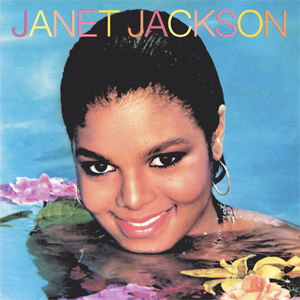
Janet Jackson is the debut studio album by American singer Janet Jackson, released in September 1982 by A&M Records. Janet Jackson is described as a dance and contemporary R&B record. Songwriters Angela Winbush and René Moore contributed to much of the album's lyrics. Moore and Winbush share production credits with Foster Sylvers, Jerry Weaver, and Bobby Watson. On release Janet Jackson charted on the Billboard 200 and in New Zealand. Three singles from the album had little impact on Billboard Hot 100 charts, among them "Young Love", "Come Give Your Love to Me" and "Say You Do", though these singles achieved success on the R&B charts. Jackson performed "Young Love" and "Say You Do" on American TV shows American Bandstand and Soul Train in 1982. The cover artwork of Jackson's body submerged in water was based on a photo of Elizabeth Taylor. Worldwide, the album has sold 300,000 copies.

Zeit is the third studio album by German electronic music group Tangerine Dream. A double LP, it was released in August 1972, being the first release featuring Peter Baumann, who joined then-current members Christopher Franke and Edgar Froese. Zeit is subtitled Largo in Four Movements.

Songs is the ninth studio album by American R&B/soul singer-songwriter Luther Vandross. It was released by Epic Records on September 20, 1994. The album, a collection of cover versions, produced the singles "Endless Love", "Always and Forever", and "Ain't No Stoppin' Us Now". According to an interview both Vandross and Mariah Carey gave in Japan following the release of their duet "Endless Love", there was mention that Carey had given advice as to what songs Vandross would cover on this album.

World Shut Your Mouth is the debut solo album by Julian Cope, released on 17 February 1984.
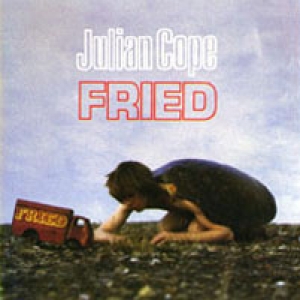
Fried is the second solo album by Julian Cope.
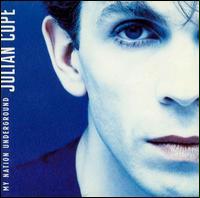
My Nation Underground is the fourth solo album by Julian Cope. It produced three singles including "Charlotte Anne".

T.E.V.I.N. is the debut studio album by American R&B singer Tevin Campbell. It was released by Qwest Records on November 19, 1991. The album was certified platinum by Recording Industry Association of America (RIAA) in 1994.

Jehovahkill is the eighth album by Julian Cope, released in 1992. After the critical success of Peggy Suicide (1991), Cope's idea for Jehovakill was to incorporate a krautrock attitude into his music. He began recording the album with musicians Rooster Cosby and Donald Ross Skinner, while co-producing it with the latter. The sessions yielded what Cope considered to be his most sonically experimental material to date. Originally titling the record Julian H. Cope, he sent an eleven track version to Island Records, who initially rejected its release, but gave Cope extra recording sessions for the album. During the extra sessions, in which six extra songs were recorded, the album became harder and was retitled Jehovahkill.

20 Mothers is the twelfth solo album by Julian Cope, released in August 1995 by Echo. The album's sub-title is "Better to Light a Candle Than to Curse the Darkness".

Autogeddon is the eleventh solo album by Julian Cope, released in 1994 on The Echo Label. According to the album's sleeve notes, written by Cope, it was "inspired by Heathcote Williams' epic poem of the same name and a little incident concerning my pregnant wife and £375,000 of yellow Ferrari in St. Martin's Lane, London, England".

Rite is an ambient album by Julian Cope and Donald Ross Skinner, released in February 1993 on Cope's own Ma-Gog label. It is the first album in the Rite series and has been described as "a series of lengthy, mostly instrumental jamming freakouts influenced by both Krautrock and psychedelic funk." The album was available as mail-order only.

Mirror Image is the seventh album by the band Blood, Sweat & Tears, released by Columbia Records in July 1974.
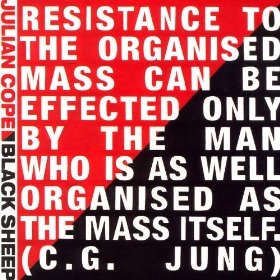
Black Sheep is a double album by Julian Cope, released on Head Heritage in 2008. It is Cope's twentyfourth solo album and features 11 protest songs across two half-hour CDs. Each CD represents "one side of an LP" with their own titles, Return of the Native and Return of the Alternative. Cope described the album as "a musical exploration of what it is to be an outsider in modern Western Culture".
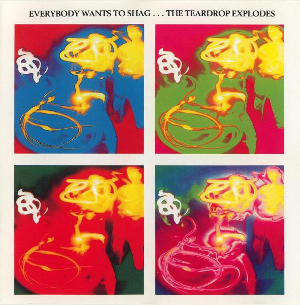
Everybody Wants to Shag... The Teardrop Explodes was the third and final studio album by neo-psychedelic Liverpool band The Teardrop Explodes. When the band reconvened to record their third album, they were reduced to the trio of Julian Cope, Gary Dwyer and a reinstated David Balfe.
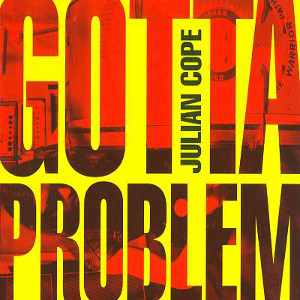
You Gotta Problem with Me is the twenty-third solo album by Julian Cope, released in 2007.

Tommy is a soundtrack album by The Who with contributions from numerous artists. The soundtrack was used in the 1975 Tommy film that was based on the original album that was released by The Who in 1969. Pete Townshend oversaw the production of this double-LP recording that returned the music to its rock roots, and on which the unrecorded orchestral arrangements he had envisaged for the original Tommy LP were realised by the extensive use of synthesiser.
Donald Skinner is a guitarist, songwriter and producer primarily known for his work with Julian Cope. Skinner is commonly known by the name Donald Ross Skinner with the addition of the middle name of Ross attributed to him by Cope after Glenn Ross Campbell, the pedal steel player from The Misunderstood. He is currently a guitarist for Love Amongst Ruin and DC Fontana.
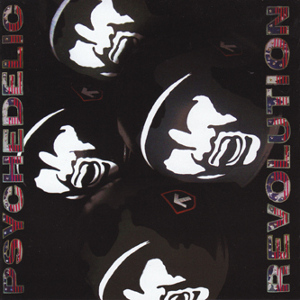
Psychedelic Revolution is a double album by Julian Cope, released in 2012 on Head Heritage. It is Cope's twenty-seventh solo album and contains 11 songs across two half-hour-long CDs. Cope dedicated the album to Che Guevara and Leila Khaled.

The Skellington Chronicles is the tenth solo album by Julian Cope, released in June 1993 on Cope's own Ma-Gog label. It contains the previously released 1989 album Skellington and its sequel Skellington 2, released here for the first time. Skellington 2 was, like its predecessor, recorded in just two days on April 21–22, 1993.



















